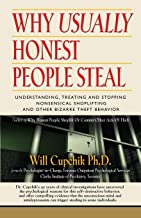Kleptomania
An impulse control disorder that results in an irresistible urge to steal.
The cause of kleptomania remains unknown but risk factors include a family history of kleptomania or other impulse control disorders. It occurs more often in women.
Kleptomania is a serious disorder that causes an irresistible urge to steal items that aren’t needed and are usually of little value. Consequences can include job loss, financial penalties, and trouble with the law.
No cure exists. But treatment with talk therapy and medication, such as antidepressants, may help end the cycle of compulsive stealing.
Cluster Number:
Wiki Number: W110
Diagnosis: Kleptomania
US Patients:
World Patients:
Sex Ratio:
Age Onset:
Brain Area:
Symptoms: Urge to steal items for other than personal use or financial gain; an impulse control disorder
Progression:
Causes: increased dopamine and serotonin flows may result; maybe like an obsessive-compulsive disorder
Medications: SSRIs, mood stabilizers, opioid receptor antagonists, and antidepressants; naltrexone
Therapies: CBT
Youtube Video: Shoplifiting Addiction/Kleptomaniacs
and Shoplifters Anonymous
Amazon or Library Book: Why Usually Honest People Steal
Click the book to link or buy from Amazon.

